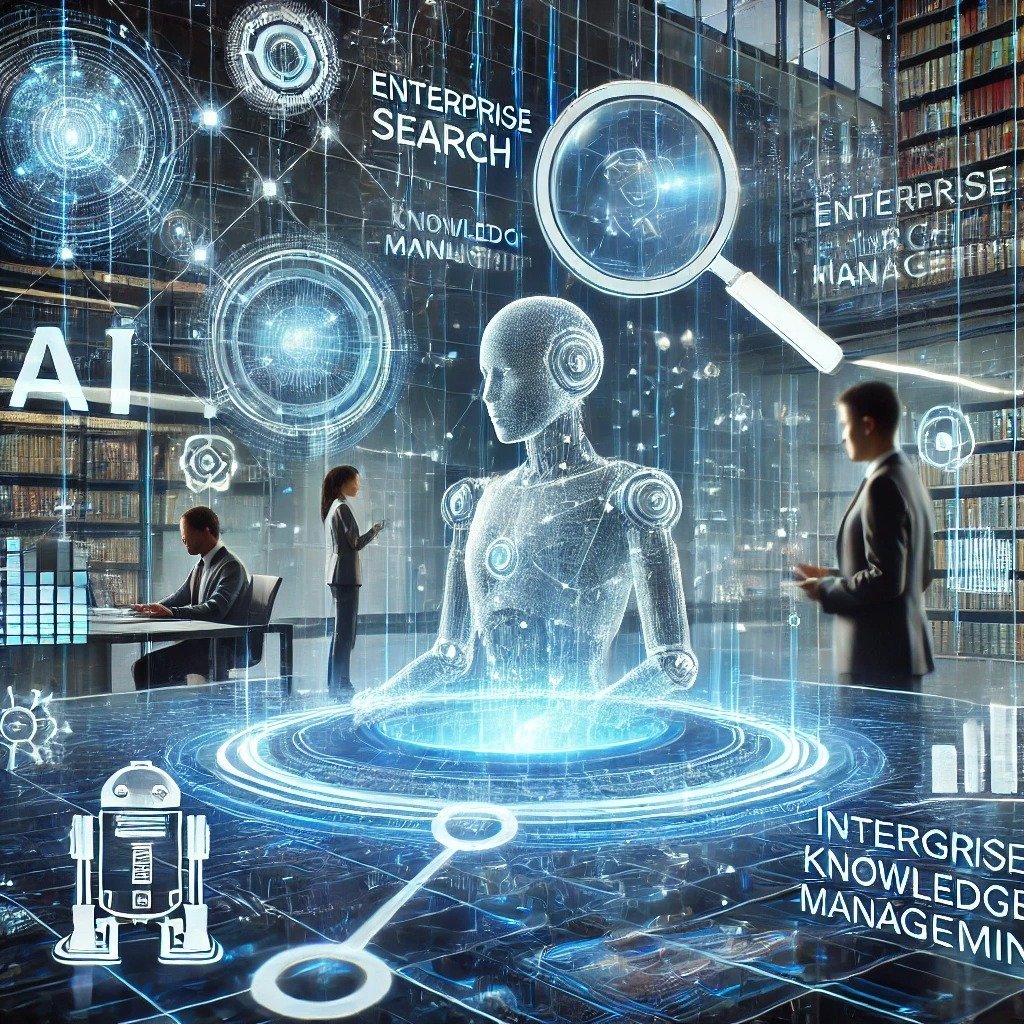The Development of Knowledge Management and Enterprise Search

Organizations are continuously looking for methods to enhance decision-making, maximize productivity, and improve information retrieval in today’s data-driven world. As technology has advanced and information landscapes have become more complex, enterprise search and knowledge management (KM) have changed dramatically over time. The evolution of enterprise search and knowledge management (KM), from simple document storage systems to complex AI-powered solutions, mirrors the larger digital transformation of businesses.
Enterprise Search and Knowledge Management in Their Formative Years
The traditional document storage and retrieval systems of the 20th century are the origins of enterprise search and knowledge management. At first, businesses stored knowledge in manually structured file systems and physical records. Information management was transformed in the 1960s and 1970s with the advent of digital databases, which made it possible for businesses to more effectively catalog and retrieve data.
As companies began digitizing their records in the 1990s, enterprise search systems began to appear. The majority of the search features were keyword-based, enabling users to use particular terms to locate pertinent documents. These systems’ limited comprehension of context, however, frequently produced search results that were either irrelevant or insufficient.
The Development of AI-Powered and Web-Based Search
Enterprise search experienced a paradigm shift in the early 2000s with the introduction of the internet and the growth of web search engines like Google. Businesses realized that their internal networks needed more user-friendly and thorough search features. Enterprise search engines consequently started implementing sophisticated indexing and ranking algorithms, which increased the precision and effectiveness of information retrieval.
The development of enterprise search has been significantly influenced by machine learning (ML) and artificial intelligence (AI). Semantic search methods and natural language processing (NLP) are used by modern search systems to comprehend user context and intent. AI-powered enterprise search can examine trends, suggest pertinent content, and deliver more individualized results rather than depending only on keywords.
Knowledge Management’s Function in Enterprise Search
Alongside enterprise search, knowledge management has developed to help with information organization and distribution. KM used to be mostly concerned with structured databases and static document repositories. However, KM strategies had to change as businesses started handling unstructured data (like emails, social media, and multimedia content).
These days, search solutions and enterprise knowledge management combine to form intelligent knowledge ecosystems. AI-powered knowledge management systems have the ability to automatically tag and classify content, guaranteeing that workers have access to the appropriate information when they need it. Furthermore, knowledge sharing between teams and geographical locations is made easy by cloud-based collaboration tools.
Enterprise Search and Knowledge Management’s Future
Emerging technologies like generative AI, predictive analytics, and augmented reality (AR) will influence enterprise search and knowledge management in the future. Chatbots and AI-driven assistants, which offer prompt responses and proactive knowledge recommendations, will proliferate in search interfaces.
Furthermore, contextual search will be improved by knowledge graphs and linked data technologies, which will link disparate pieces of information to present an enterprise knowledge picture in its entirety. Enterprise search solutions will also incorporate sophisticated encryption and access control mechanisms, as businesses place a high priority on data security and compliance.
Enterprise search and knowledge management will continue to be essential for increasing productivity, spurring innovation, and guaranteeing a competitive edge in the information age as companies embrace digital transformation.
